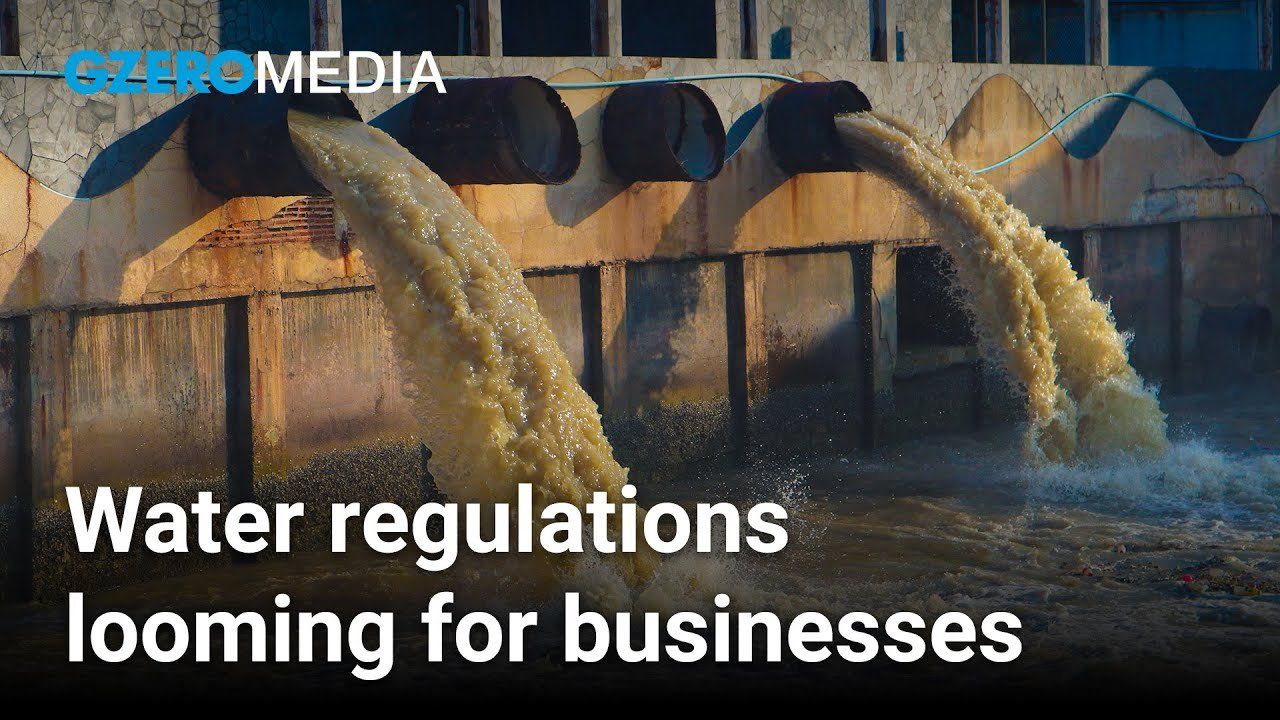Water is an incredibly personal topic, integral to the lives and traditions of communities everywhere. That means companies must be very careful about how they use water resources, even those to which they are legally entitled, says Shari Friedman, Eurasia Group's Managing Director for Climate and Sustainability.
"If they're taking it away or they're polluting a source, it's something that's incredibly visible, as people use it," she said. "And it's something the press can pick up on pretty quickly, and it affects a company's license to operate."
That reputational risk has led some companies to start proactively rolling out plans to manage water use and keep sources clean and sustainable even in the absence of government regulations. But the government still has a role to play, said Friedman, pointing to emerging regulations around so-called "forever chemicals" and the European Union's attempt to improve river health by 2027.
She spoke at a GZERO Live event organized by the Sustainability Leaders Council, a partnership between Eurasia Group, GZERO Media, and Suntory.
Watch the full livestream conversation: The global water crisis and the path to a sustainable future
More For You
Most Popular
With the US leading production and China driving new reactor development, Bank of America breaks down the who, what, where, when, and why behind nuclear’s return. Stay ahead of global energy trends with Bank of America Institute.
Chris, an Army veteran, started his Walmart journey over 25 years ago as an hourly associate. Today, he manages a Distribution Center and serves as a mentor, helping others navigate their own paths to success. At Walmart, associates have the opportunity to take advantage of the pathways, perks, and pay that come with the job — with or without a college degree. In fact, more than 75% of Walmart management started as hourly associates. Learn more about how over 130,000 associates were promoted into roles of greater responsibility and higher pay in FY25.
Last week, at the Munich Security Conference, a group of global technology providers, including Microsoft, announced the Trusted Tech Alliance — committed to shared, verifiable principles for trusted, transparent, and resilient technology across borders. At a moment of economic volatility and zero-sum technological competition, countries and customers are demanding greater accountability from technology providers. The Alliance addresses this by bringing together companies from across Africa, Asia, Europe, and North America around shared commitments: transparent governance, secure development practices, supply chain oversight, open digital ecosystem, and respect for the rule of law — ensuring the benefits of emerging technologies strengthen public trust while driving job creation and economic growth. Explore the Trusted Tech Alliance here.
